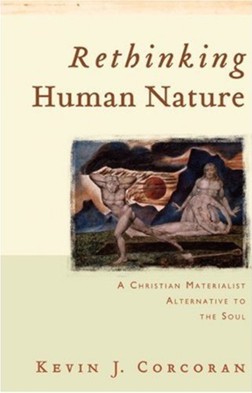 Here are our big questions in this series of posts: How do we move beyond the Bible? Should we? Better yet: Since we have to, how do we move beyond the Bible into our world but do this biblically? This is the concern of Zondervan’s new Counterpoint book edited by Gary Meadors: Four Views on Moving beyond the Bible to Theology (Counterpoints: Bible and Theology)
Here are our big questions in this series of posts: How do we move beyond the Bible? Should we? Better yet: Since we have to, how do we move beyond the Bible into our world but do this biblically? This is the concern of Zondervan’s new Counterpoint book edited by Gary Meadors: Four Views on Moving beyond the Bible to Theology (Counterpoints: Bible and Theology)
. As I said Tuesday, this book touches on themes I discuss in more popular form in The Blue Parakeet: Rethinking How You Read the Bible .
.
What do you think of Doriani’s take on gambling? I wonder if the stock market, etc, are seen as gambling?
The first model was that of Walter Kaiser and he called his approach “principlizing” which moves from particulars to timeless principles back to particulars in a Ladder of Abstraction. The second approach comes from Daniel Doriani, who wrote a nice exposition of James, in what he calls the “redemptive-historical approach.” He affirms the authority, sufficiency and clarity of Scripture.
He believes in (1) close, accurate interpretation, (2) synthesis of biblical data into doctrinal and ethical statements (propositions), (3) application of Scripture in an imitation of God manner, and (4) he believes in using narratives in Scripture (he’s responding to the didactic vs. narrative discussion).
Doriani, who is close to Kaiser in most ways except they frame things differently, sees some legitimation in going beyond the Bible: to enunciate what is latent in the text and to address issues that the Bible doesn’t address. But some go beyond the Bible by going against it — and he critiques complementarians in this regard and he pushes against arcs and the redemptive movement hermeneutic.
He proposes going beyond through casuistry: the art of discerning particular behaviors in light of general principles. (Here he sounds like Kaiser to me.)
But he goes at this differently than does Kaiser, who opts for the Ladder of Abstraction. Doriani says we should ask questions in four categories and these questions shape how we respond to issues not addressed in the Bible:
Duty, Character, Goals and Vision.
He then applies his casuistic set of questions to gambling, architecture, and then to women and ministry.
Gambling: gambling can apply to a variety of things and the Bible never addresses gambling. What it says about “lots” goes in both directions — sometimes good, sometimes not.
1. Gambling violates our duty in the 4th Commandment. Promises wealth without toil. It promises wealth at times with false promises. etc
2. Gambling promotes flaws in character. Greed etc.
3. Gambling’s goal is to get rich at the expense of others. etc
4. The gambler’s worldview/vision is luck and not providence.
Kaiser mostly agrees; Vanhoozer pushes back for more awareness of Church history and to push more into how we futher the theodrama, and Webb pushes back for how Doriani understands the redemptive movement hermeneutic and for spending too much time criticizing other views and not enough defending his own. (I completely agree with Webb in his critique of Doriani for predicated arguments wherein Doriani assumes his own correctness. That’s for another day.)
Here are our big questions in this series of posts: How do we move beyond the Bible? Should we? Better yet: Since we have to, how do we move beyond the Bible into our world but do this biblically? This is the concern of Zondervan’s new Counterpoint book edited by Gary Meadors: Four Views on Moving beyond the Bible to Theology (Counterpoints: Bible and Theology)
.

